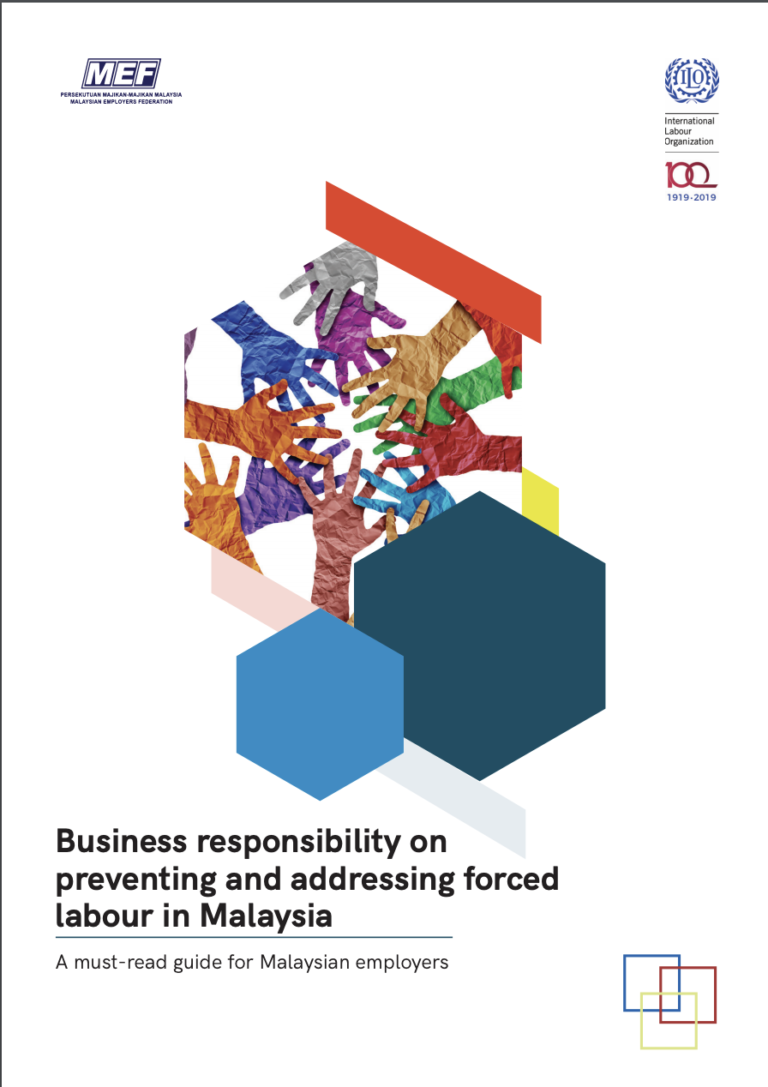Is this guide for you?
This guide is for you if you are any of the following:
You are an existing employer in Malaysia of one or more local or migrant worker. You will learn the definitions, concepts and national laws and policies related to forced labour so you could fulfill your legal obligations and avoid the headache of any legal sanctions. Tips and potential good practices on preventing forced labour practices are provided. There is a chapter specific to employment of migrant workers.
You have a business – regardless of your current size – and you want to optimize your growth potential and become sustainable. You will learn from other companies’ experiences how preventing forced labour makes business sense, protects and attracts investment, eases cross-border trading and promotes fair competition.
If you are doing business with global brands, you will benefit from understanding the international standards and how to develop company policies aligned with your buyer’s sourcing policies.

